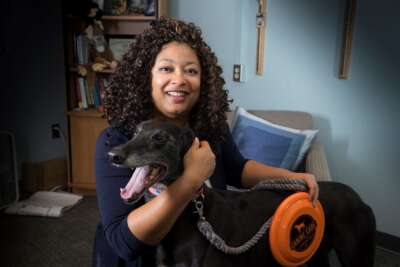
- This event has passed.
Wednesday, November 18, 2020 @ 12:30 pm - 1:30 pm

Implicit bias reflections: raising consciousness to enhance academic culture, climate, and community – with Prof. Candace Croney, Director, Purdue University’s Center for Animal Welfare Science
Academics are typically taught to avoid bias in their work. The need to do so is especially critical in science and medicine, but is no less important to other disciplines, such as those pertaining to history, politics or communications. Incorrect assumptions or snap judgments can lead to poor choices that impair the quality of our work, tarnish reputations, and worse, cause harm to those we intend to serve and others with whom we interact in society. While we all hold biases, those we are unaware of or reluctant to acknowledge can severely damage our interactions and professional culture.
Implicit bias is particularly insidious in this regard. Implicit bias, reflected in attitudes or stereotypes we may not even realize we hold, can impact our judgements about others and behaviors towards them. These types of unconscious beliefs are so deeply rooted that they may cause us to unintentionally demonstrate prejudice even when we genuinely mean well and openly reject prejudicial ideas and behaviors. This can affect both the workplace climate and the quality of work we do. While debate exists about how to address implicit bias, greater awareness and mindfulness about our thought processes may be key to minimizing its detrimental effects.
About Prof. Candace Croney
Prof. Candace Croney is director of Purdue University’s Center for Animal Welfare Science and professor of animal behavior and well-being in Comparative Pathobiology and Animal Sciences. She earned her PhD in animal sciences from Pennsylvania State University. She has served as assistant director of conservation education at the American Zoo and Aquarium Association and has held faculty appointments in animal sciences at Oregon State University and preventive medicine at Ohio State University College of Veterinary Medicine. Her research and engagement programs focus on evaluating and improving the welfare of companion and agricultural animals, understanding public perceptions of animal agriculture, and exploring the ethical implications of animal care and use decisions. Her work has been featured in national and international broadcast programs by National Geographic, Animal Planet and the BBC.
She serves as scientific advisor on animal welfare to numerous groups, including the American Humane Association, Bob Evans Farms, Good Dog, Fairlife and Tyson Foods. She has recently developed a new voluntary national certification program for the care and welfare of breeding dogs, Canine Care CertifiedTM.
